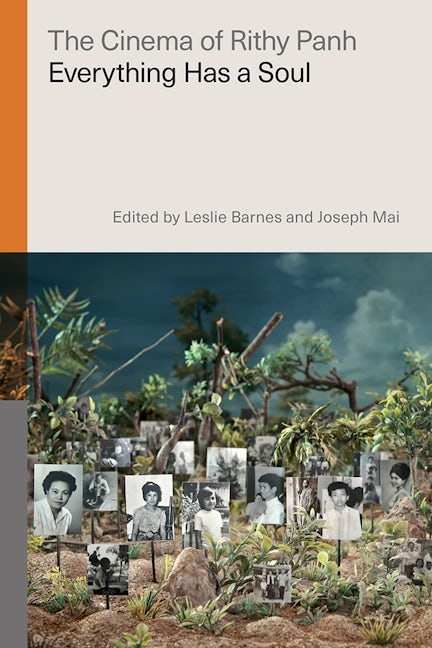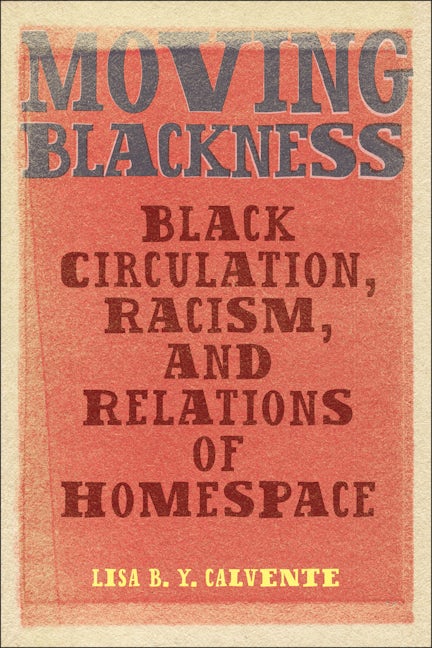Nominated for 2022 South Atlantic Modern Language Association Book award
Born in 1964, Cambodian filmmaker Rithy Panh grew up in the midst of the Khmer Rouge’s genocidal reign of terror, which claimed the lives of many of his relatives. After escaping to France, where he attended film school, he returned to his homeland in the late 1980s and began work on the documentaries and fiction films that have made him Cambodia’s most celebrated living director.
The fourteen essays in The Cinema of Rithy Panh explore the filmmaker’s unique aesthetic sensibility, examining the dynamic and sensuous images through which he suggests that “everything has a soul.” They consider how Panh represents Cambodia’s traumatic past, combining forms of individual and collective remembrance, and the implications of this past for Cambodia’s transition into a global present. Covering documentary and feature films, including his literary adaptations of Marguerite Duras and Kenzaburō Ōe, they examine how Panh’s attention to local context leads to a deep understanding of such major themes in global cinema as justice, imperialism, diaspora, gender, and labor.
Offering fresh takes on masterworks like The Missing Picture and S-21 while also shining a light on the director’s lesser-known films, The Cinema of Rithy Panh will give readers a new appreciation for the boundless creativity and ethical sensitivity of one of Southeast Asia’s cinematic visionaries.
Chronology
Introduction: Rithy Panh and the Cinematic Image
Leslie Barnes and Joseph Mai
Part I: Aftermath: A Cinema of Post-War Survival
1. The “Mad Mother” in Rithy Panh’s Films
Boreth Ly
2. Resilience in the Ruins: Artistic Practice in Rithy Panh’s The Burnt Theater
Joseph Mai
3. The Wounds of Memory: Poetics, Pain, and Possibilities in Rithy Panh’s Exile and Que la barque se brise
Khatharya Um
Part II: From Colonial to Global Cambodia
4. Rithy Panh’s The Sea Wall: Reinventing Duras in Cambodia
Jack A. Yeager and Rachel Harrison
5. Rithy Panh as Chasseur d’images
Jennifer Cazenave
6. Aerial Aftermaths and Reckonings from Below: Reseeing Rithy Panh’s Shiiku, the Catch
Cathy J. Schlund-Vials
7. Cambodia's "Wandering Souls": Migrant Labor and the Promise of Connection
Leslie Barnes
Part III: The Question of Justice
8. Archiving the Perpetrator
Stéphanie Benzaquen-Gautier and John Kleinen
9. Creating Duch: The Projects of Duch, François Bizot, and Rithy Panh
Donald Reid
10. Rithy Panh, Jean Améry, and the Paradigm of Moral Resentment
Raya Morag
Part IV: Memory, Voice, and Cinematic Practice
11. Looking Back and Projecting Forward from Site 2
Lindsay French
12. Bophana’s Image and Narrative: Tragedy, Accusatory Gaze, and Hidden Treasure
Vicente Sánchez-Biosca
13. Memory Translation: Rithy Panh’s Provocations to the Primacy and Virtues of the
Documentary Sound/Image Index
David LaRocca
14. Rithy Panh: Storyteller of the Extreme
Soko Phay
Acknowledgments
Bibliography
Notes on Contributors
Index
LESLIE BARNES is senior lecturer of French studies at the Australian National University in Canberra. She is the author of Vietnam and the Colonial Condition of French Literature. Her current project studies literary and cinematic narratives that engage with questions of sex work, mobility, and human rights in Southeast Asia.
JOSEPH MAI is an associate professor of French with an affiliation in world cinema at Clemson University in South Carolina. He is the author of Jean-Pierre and Luc Dardenne and Robert Guédiguian. His scholarship examines intersections between ethics, aesthetics, cinema, and literature.










